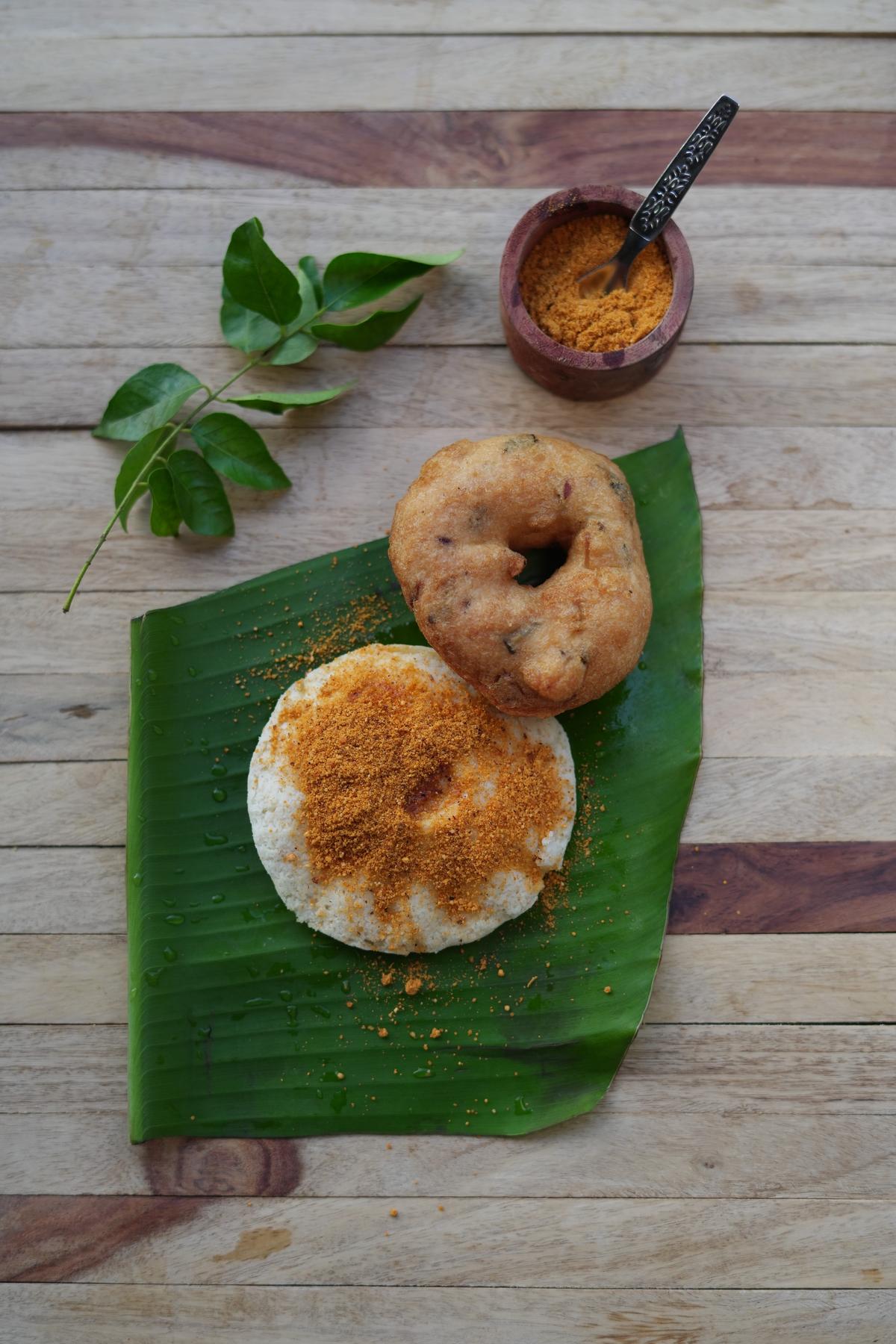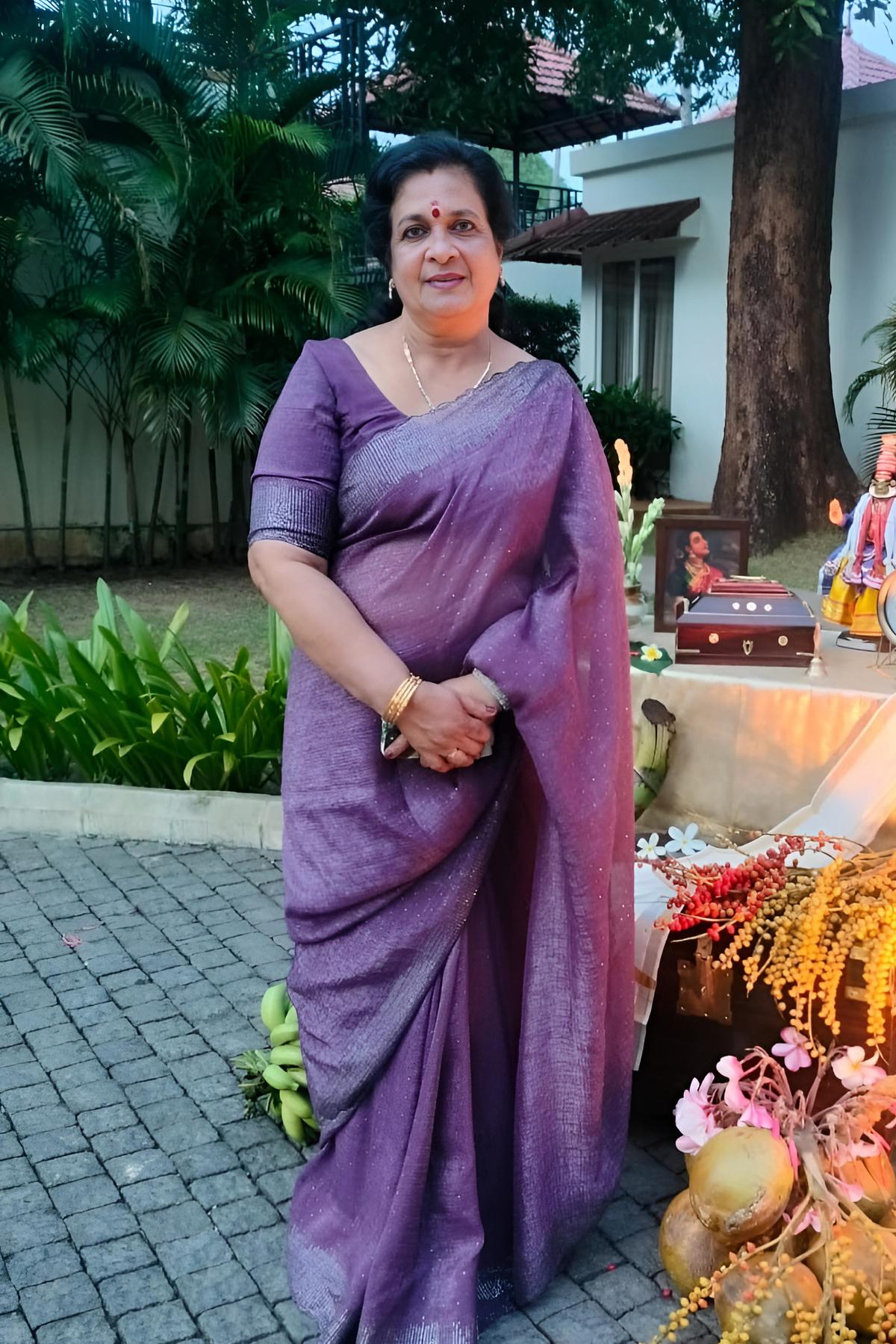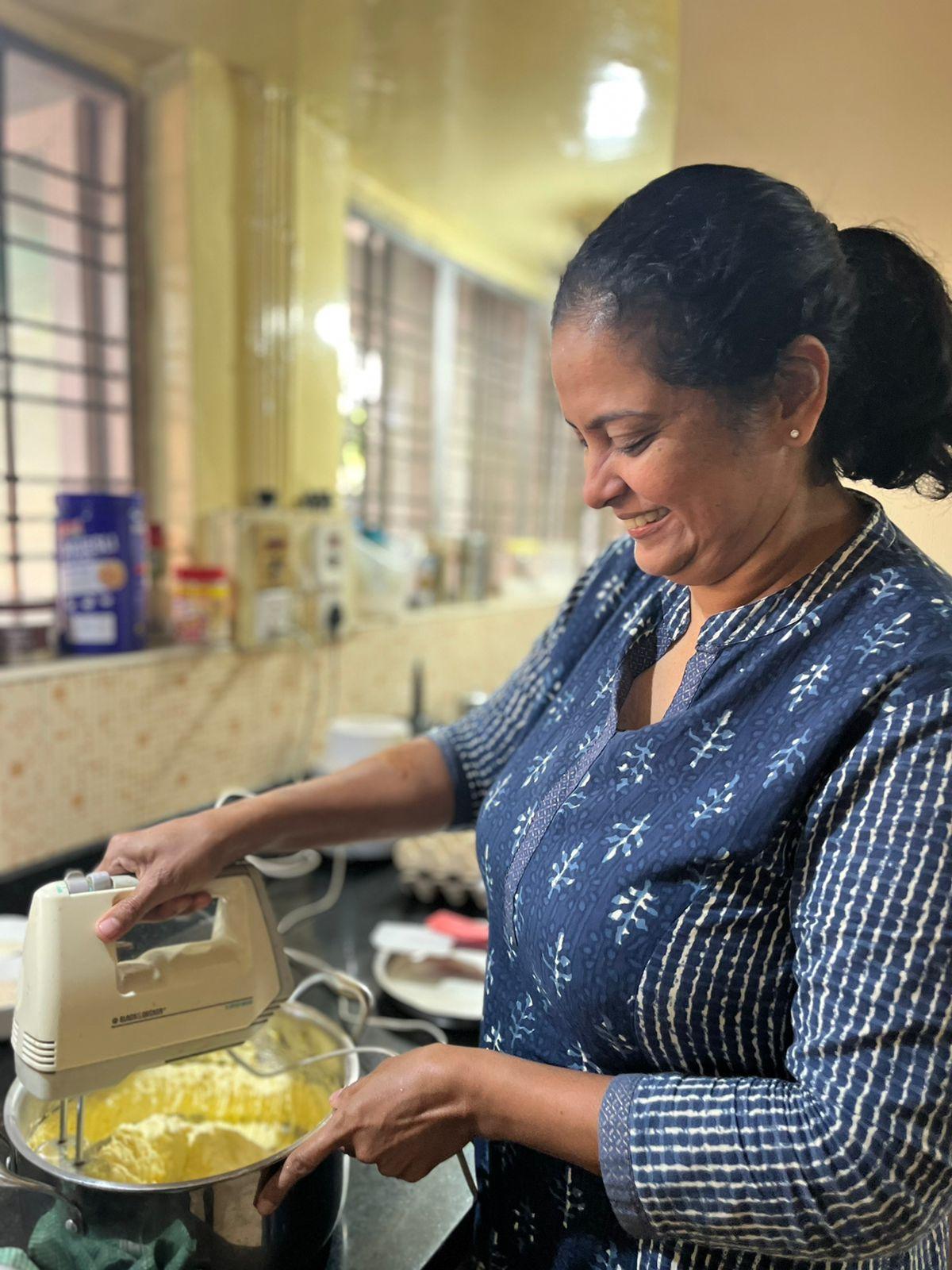Remember that craving for homemade pickle, mulagu podi, chammanthi podi, poha, cookies and chivdawhen you were away from home? If you live or have lived away from home — either as a student or for work — you know it. And it was something Mumbai-based engineer Reshma Suresh felt intensely when she moved away from home in Kochi to work in Mumbai. Those care packets from home, with pickles, mulagu podi, chammanthi podi (chutney powder) and banana and jackfruit chips were eagerly looked forward to.
Although some of these or their iterations would be available in supermarkets and online e-commerce platforms, “it would lack the emotion of ‘mom or dad’ made food,” says Reshma. Despite the convenience, takeout would seldom be ‘authentic’. The big question — would it all be hygienically prepared? For instance, what of the quality of the ingredients?

Mulagu podi made by Lakshmi Mohan
| Photo Credit:
SPECIAL ARRANGEMENT
“Food is after all an emotion,” says Reshma, the founder of Tocco, a ‘social commerce’ platform that sells home-cooked snacks and meal accompaniments, which it sources from a network of vetted home chefs sprinkled across the country. “My career has nothing to do with food; I worked in tech-building in the health-care sector. But food has become my passion project,” she says over the phone from Mumbai.
Home made snacks
A combination of factors — a weekend project making small batches of banana chips, which grew to become the plantain chips brand Meengurry Memories in 2021, and a hiatus from work led to the idea and subsequently a prototype of Tocco in 2022. With the idea taking root, she asked family — mother and aunt — to send items that they made in their kitchens: chammanthi podi, prawn-mango pickle, veppila katti… as a test run, selling them to her Meengurry clients.

Reshma Suresh, founder of Tocco
| Photo Credit:
SPECIAL ARRANGEMENT
Over the next year, the idea of an e-commerce platform for home chefs exclusively selling homemade items crystallised and, finally, in 2023, Tocco was soft launched.
Several months of homework went into getting Tocco up and running. ‘Packing nostalgia’ has strict parameters — it should be made in a home kitchen without preservatives with a shelf life of between 20 to 30 days. “Our selection process is thorough. We cannot afford to compromise. The processes are stringent as are the terms of onboarding. We look at photographs and videos of the kitchen — the space, cleanliness — besides sampling the product and keeping track of the ingredients,” adds Reshma. All home chefs are FSSAI-certified.
Tocco’s plans
Tocco is also part of the Kerala government project Samagra Kottarakkara where they are helping build a community kitchen in Kottakkara, near Kollam, to generate livelihoods for men and women by manufacturing products for Tocco with locally sourced raw materials. Reshma’s plans with Tocco, that it be ‘integrated’ into everyday meals is working. From meal accompaniments such as pickles, podis and kondattams and snacks she wants to move into cooking essentials — spice powders (chilli, turmeric, coriander etc), rice and oil too. Currently they have coconut oil.
Once the homechef and their kitchen is vetted, next comes tasting by a panel comprising existing customers, professional chefs, and the quality control team. The perspectives are asked to send their top two products as samples. After tasting, tweaks are suggested based on the feedback. This is the first time that most home chefs have been part of a venture like Tocco. “Since they are first-timers at this we provide a best practices training module, for instance, using separate utensils or pricing and eco-friendly packaging.”
Over the two years of existence, it has built a base of around 15,000 customers, and on boarded 30-odd home chefs from Kerala, Karnataka, Maharashtra, Gujarat, Punjab and growing. This is not a marketplace in a commercial sense, she adds.
“We are agnostic in terms of the region and gender (of chefs) but yes, most of them are women and there are husband and wife pairs too,” says Reshma. Most of them are aged 45 and above, the oldest is 66 years old. They are either on a break from their jobs, retired or have never worked before. Tocco, they say, has been a confidence boost not just in financial terms but also in terms of what they can do.

Mona Mehta
| Photo Credit:
SPECIAL ARRANGEMENT
Bhavana Shah, 52, of Mumbai has been with Tocco for two years, since inception. Her specialities are flax seeds puri, mini nan khatai, and Maharashtra poha chivda. She used to conduct online classes for starters and desserts during lockdown. “Whatever I cook, I do it like I would for my family, for my kids. This is a platform for me to showcase our skills, be proud of ourselves and what we can do,” she says. She does everything herself, “this is not mass produced, just in small batches in my kitchen. I can do this myself,” she says.

Lakshmi Mohan
| Photo Credit:
SPECIAL ARRANGEMENT
Reshma’s mother’s sister, Lakshmi Mohan, also a homemaker, who was one of the first people to become a part of Tocco echoes the sentiment. Of how she came to be part of it, Kozhikode-based Lakshmi says, “I was anyway making chutney podi for my kids, so it was not too different when Reshma asked me to join her. I make rasam and sambar podi. Since these are made on order, there is no pressure to make it in quantities and stock. I can do it at my own pace and I do everything myself.” The 60-year-old economics graduate has never worked but she is enjoying herself.
Chips, pickles and spice mixes
Banana chips, diamond cuts, cut mango pickle, prawn pickle, tuna pickle, murukku, chemmeen chamanthi (chutney) podi, kasuri methi shakkarpara, makkai chivda, masala cookies, metkut powder, chaat masala, Hyderabadi biryani masala, and moringa chutney powder are the other items on their product list.
Although their products comprise snacks, pickles, and podis, their biggest market is snacks. There is no fixed quantity of snacks each home chef sells monthly, on an average it is around 10 to 20 kilograms, in the case of pickles it is 10 kilos a week. “The monthly income of each depends on the quantity they sell; during Christmas time one of our home chefs who makes plum cakes made close to ₹1 lakh. Our focus is not quantity but quality,” says Reshma.
Since most of the Tocco merchandise is not pre-made and stocked, it eases pressure on the home chefs. As the snacks are homemade, on order, the delivery time might be longer.

Annie Philip
| Photo Credit:
SPECIAL ARRANGEMENT
Bengaluru-based Annie Philip bakes plum cakes. The home baker used to give her cakes to family and friends but never thought of taking the commercial route until Reshma, the daughter of family friends approached her.
“There is no pressure to be constantly working and getting stuff ready plus my regular routine is not affected as I work at my pace; the cakes have a 30-day shelf life which also eases pressure. Eight cakes in one batch, and two hours of work. How much more comfortable can it get?” she asks. Last December alone she sold more than 200 cakes.

Bhavana Shah
| Photo Credit:
SPECIAL ARRANGEMENT
Listening to these women, one comes away feeling that this is not just about the money. It is about being able to use their time and skills, and feeling good about it. Mona Mehta, 59, also from Mumbai, has been associated with Tocco for the past six months. This is the first time the homemaker is ‘working’. Her specialty is cornflakes chivda, which she makes with help from her husband. “I joined Tocco as ‘time-pass’ but I have come to enjoy myself. I dispatch 20 to 30 packets (155 grams each) a week. The feedback feels good and it gives me a sense of independence too,” she adds.
So what does the name Tocco stand for ? “Tocco is The Orange Candy Co (like the nostalgic orange candy we all had growing up?) It also means touch in Italian, symbolising the touch of our parents as they prepare food!”
Published – April 11, 2025 03:51 pm IST

